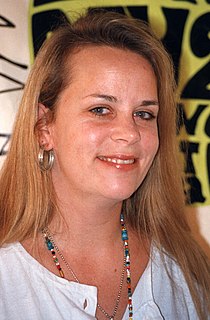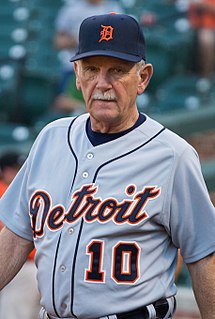A Quote by Ellen Ullman
Reading code is like reading all things written: You have to scribble, make a mess, remind yourself that the work comes to you through trial and error and revision.
Related Quotes
Reading is everything. Reading makes me feel like I've accomplished something, learned something, become a better person. Reading makes me smarter. Reading gives me something to talk about later on. Reading is the unbelievably healthy way my attention deficit disorder medicates itself. Reading is escape, and the opposite of escape; it's a way to make contact with reality after a day of making things up, and it's a way of making contact with someone else's imagination after a day that's all too real. Reading is grist. Reading is bliss.
Reading changes your life. Reading unlocks worlds unknown or forgotten, taking travelers around the world and through time. Reading helps you escape the confines of school and pursue your own education. Through characters - the saints and the sinners, real or imagined - reading shows you how to be a better human being.
THE WRITER can get free of his writing only by using it, that is, by reading oneself. As if the aim of writing were to use what is already written as a launching pad for reading the writing to come. Moreover, what he has written is read in the process, hence constantly modified by his reading. The book is an unbearable totality. I write against a background of facets.
Pace yourself in your reading. A little bit every day really adds up. If you read during sporadic reading jags, the fits and starts will not get you anywhere close to the amount of reading you will need to do. It is far better to walk a mile a day than to run five miles every other month. Make time for reading, and make a daily habit of it, even if it is a relatively small daily habit.
Teenagers are always sneaking around in drawers where they shouldn't go and reading things they shouldn't be reading. And that's an attempt to try, I think, to penetrate, that's how I found out as a teenager what was going on, was by sneaking into drawers and reading letters that I had no business reading.
We work with tweens. Middle school grades. That's a key time in a young person's literary history. That's the time when they're still open to reading, but there are other things that are starting to interest them that can pull them out of their reading habits. It's a critical time to make the reading habits stick, but at the same time it's not pulling teeth to try to get them to read in the first place.

































